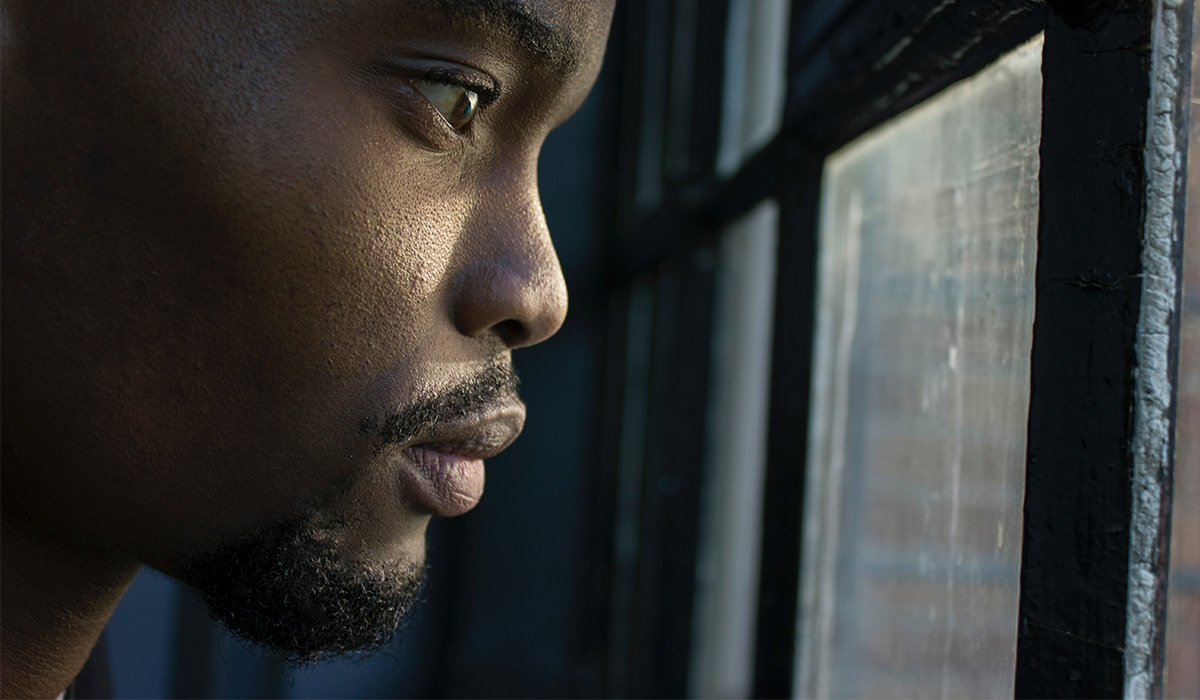Trauma, Race, and Masculinity with Wendell Moss, Part One

We’ve got something special on the podcast today. Dan is stepping away from the microphone as Wendell Moss, a therapist and member of our Teaching Staff, joins the And Sons podcast to talk with Sam Eldredge about the intersections of trauma, masculinity, and race. It’s a weighty conversation, one that reminds Sam of this Dan Allender quote: “Hearing someone else’s story should be entered with a kind of holiness that takes your shoes off.” Since Wendell will be using some of his own experience to illuminate the conversation, he and Sam start by talking about his relationship to his own story.
Wendell: “I spent so much of my life hating my story. I spent so much of my life where shame was normal for me. I walked around feeling fraudulent, that feeling of if you only knew me.”
Wendell faced a turning point when he encountered people who wanted to sit with him and hear his story—to stay present with him, not turning their faces or expressing disappointment. It opened the door to an unexpected grace, which allowed Wendell to realize that his story is worth being engaged with curiosity, honesty, and grief. Now Wendell gets to sit with others and offer the same: the face-to-face declaration that your story matters because you matter.
Wendell: “It was really out of my pain and process that I began to feel like I have the courage to enter someone else’s story.”
For many men, an openness to that deep engagement of the heart feels taboo. Letting someone enter our story means admitting that we can’t do it ourselves, that we need help. It might even mean facing words like ‘abuse’ and ‘trauma,’ categories that many perceive as a pronouncement of weakness. Sam shares how, even in the honest and thoughtful conversations they foster at And Sons, they still encounter the assumption that to be masculine means to be immune to trauma. Wendell talks about the feeling of “How dare you” that lasted for years after someone named abuse in his story. Eventually, though, the categories of abuse and trauma brought comfort. They helped Wendell realize that he had felt dirty all his life, like something was ‘wrong’ with him, when instead something wrong had been done to him.
Wendell: “There have been a lot of times in my life that I’ve had to show courage. But engaging my story invited me to a courage that I never knew.”
There have been a lot of times in my life that I’ve had to show courage. But engaging my story invited me to a courage that I never knew.
Sam and Wendell discuss the stoic form of strength they both see portrayed in cultural images of masculinity. Wendell sees that often in men he works with—the need for a strength that means invincibility, immunity to harm or weakness. In the community Wendell grew up in, it was about “never letting them see you sweat.” Sam points out the irony of coming to a therapist’s office and then trying to show that you don’t need help; it points to how deeply rooted these messages about masculinity are. Wendell says that seems true for men across cultural boundaries, and particularly for men of color—which he and Sam will discuss more explicitly in next week’s episode.
Wendell: “I will test you. I will not let you see a crack in my armor. When we talk about African-Americans, that’s part of our history. You had to know how to bear and not show that you’re cracked.”
